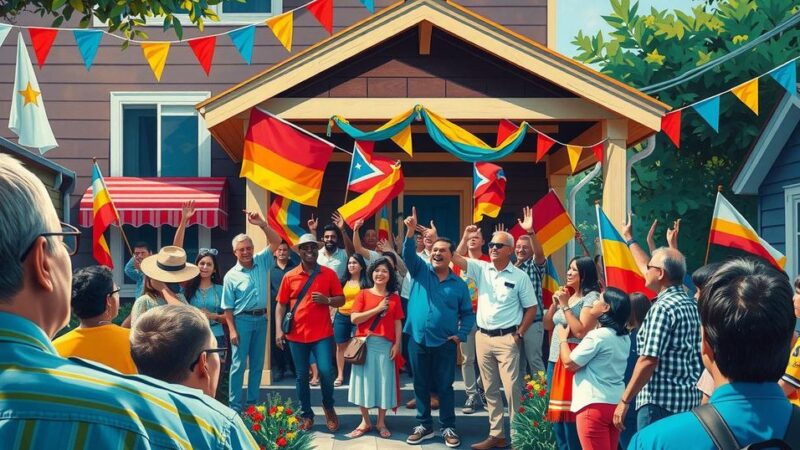- Orlando Fals Borda is recognized as the father of sociology in Colombia.
- His work emphasizes the critical role of researchers in community engagement.
- Founding the first Faculty of Sociology in Latin America was a significant milestone.
- Participatory Action Research, created with his wife, changed academic research in Colombia.
- His life’s work advocates for a sociology that responds to social needs.
Legacy of Orlando Fals Borda in Sociology
Orlando Fals Borda, who is often called the father of sociology in Colombia, continues to be a significant figure in the realm of social thought in Latin America, even a century after his birth. His contributions urge us to examine the role of researchers, not merely as academic observers but as active, politically engaged participants in their communities. In a country that must address its sociocultural challenges and work towards unity, Fals Borda’s legacy provides a call to action.
Early Academic Foundations of His Work
Born on July 11, 1925, in Barranquilla, Fals Borda attended the University of Dubuque in Iowa, where he delved into English Literature and History, graduating in 1947. His academic journey didn’t stop there; he went on to obtain a master’s degree from the University of Minnesota in 1953, later earning his doctorate in Latin American Sociology from the University of Florida two years later. During this time, Fals Borda focused on qualitative methodologies with a rural approach, conducting research that laid the foundation for his later acclaimed work, ‘Campesinos de los Andes.’ This early experience was pivotal, establishing his path as a committed scholar.
Pioneering Sociology and Participatory Research
Fals Borda’s pioneering work began to take shape when he co-founded the first Faculty of Sociology in Latin America at the National University of Colombia in 1959, alongside other prominent intellectuals. He emphasized a sociology that was intimately tied to Colombia’s unique context, tackling issues such as land concentration and the societal upheaval characterized by ‘La Violencia.’ Beyond academia, he developed the country’s first graduate program in the Sociology of Education, demonstrating a clear link between theoretical frameworks and the pressing realities on the ground. His approach to Participatory Action Research (PAR), developed with his wife, managed to place local communities at the forefront of knowledge production, significantly changing how research was conducted in Colombia.
Exploring Violence and Social Change
Throughout his lifetime, Fals Borda authored seminal works that revealed the complex intersection of violence and societal change in Colombia. His 1962 work, ‘La violencia en Colombia,’ evaluates societal tensions and challenges the traditional elite, whereas ‘La subversión en Colombia’ emerges following a pivotal personal loss—the death of his friend Camilo Torres. This marked a shift in Fals Borda’s perspective as he embraced a more politically assertive sociology that called for social transformation. His influential output revealed deep insights into Colombia’s agrarian issues, identity, and community resilience, blending academia with activism.
Fals Borda’s Centennial Commemorations in 2025
As Colombia celebrates the centenary of Orlando Fals Borda, numerous events have highlighted his ongoing influence on sociology and beyond. Commemoration activities include a legislative measure by Congress dedicated to preserving his writings and producing a documentary on his life and work. The National Library recently launched a collection of some of his key texts, including works that have shaped Colombia’s understanding of social fabric. Meanwhile, the University of Atlántico is declaring 2025 as the ‘Orlando Fals Borda Year,’ focusing on academia and cultural engagement to honor his commitments and address contemporary issues.
Enduring Influence and Legacy of a Visionary Sociologist
Fals Borda’s impact goes beyond academic achievements; it exemplifies a profound commitment to engaging with the community. His work speaks to contemporaneous social movements across Colombia, and his teachings on community involvement and collective knowledge continue to resonate. His legacy is underscored by the active participation of the Camilo Torres – Fals Borda Chair at the National University, which continues to integrate his philosophies into modern educational reforms. It’s evident that Fals Borda’s life and work inspire future generations, instilling a passion for sociological inquiry tailored towards transformative action.
Orlando Fals Borda’s centenary not only calls for reflection on his contributions to sociology and social justice but also revitalizes discussions about how we engage with communities today. His life serves as a reminder of the power of scholarship linked to activism, advocating for a more equitable society. As Colombia and the world continue to grapple with systemic challenges, Fals Borda’s insights and methodologies remain pivotal, urging new research that bridges academia and grassroots advocacy to build a better future.






